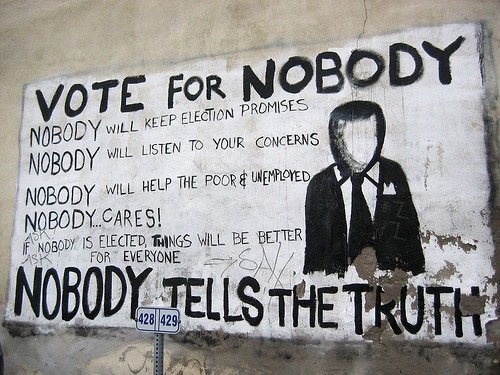Right-wing Terrorist: Before the world learned that the Oslo bomb had been detonated by Anders Behring Breivik the global news media correctly described the event as a terrorist attack. But, once it became clear the perpetrator was a Norwegian national, his carefully planned military mission suddenly became something else. Breivik himself became "the gunman", while his Labour Youth targets became the "teenage" victims of a "shooting spree" or "deadly rampage". Why does the Western media find it so hard to call Breivik's actions by their proper name: terrorism?
HOW EASILY WE ACCEPT the peculiar moral alchemy of our masters. Their effortless, almost magical power to transmute the Norwegian tragedy into something else; something quite distinct from a terrible and despicable act of political terrorism.
Anders Behring Breivik is indisputably a political terrorist, and the Norwegian authorities have treated him as such. He is being tried for terrorism.
So, why have governments and newspaper editors around the world shied away from using the words “terrorism” and “terrorist” to describe the murderous acts of this 32-year-old ultra-nationalist, anti-socialist, cultural exclusionist?
Over and over again we hear and read about Breivik as “the gunman” who went on a shooting “rampage” or “spree”.
Breivik’s victims have been similarly misrepresented. These young people weren’t gunned down for being “teenagers”, and Utoya Island wasn’t chosen simply because it was a “summer camp”. Breivik’s target was the annual gathering of the youth wing of the Norwegian Labour Party – the dominant partner in Norway’s left-wing coalition government.
In court, Breivik calmly explained that he had targeted the Utoya Island gathering quite deliberately. Partly to punish the Labour-led government for its promotion of multiculturalism. Partly to wipe out the next generation of Labour Party leaders and impede the recruitment of replacements.
And yet, all over the English-speaking world, these decisive facts of Breivik’s terrorism are blurred, smudged – even erased. Politicians and journalists ask us instead to focus on “the gunman’s” singularity. They speculate about his mental state, emphasise the extreme or “fantastic” character of his beliefs, and do everything within their power to distance Breivik from what they consider to be “normal” political activity.
HOW DIFFERENT things were in that confused hour before the terrorist’s Norwegian ethnicity was confirmed.
Prior to this crucial confirmation, all the talk had been about “Islamist terrorism”. Experts from far away countries effortlessly detected Al Qaida’s “signature” among the Oslo rubble. In the fog of war, well before all the facts were known, nobody seemed in any doubt that they were looking at an act of terrorism.
So, why did the language and the ontological perspective change when the world discovered that Norway wasn’t Al Qaida’s latest victim after all, but that it was, in fact, dealing with an act of home-grown terrorism?
Why do the Western World’s opinion-shapers feel so uncomfortable applying the word “terrorism” to anything other than the deadly acts of Islamist extremists?
THE MOST OBVIOUS ANSWER is that it is difficult to wage a “Global War on Terror” (GWOT) if the terroristic “them” have not been clearly, unequivocally, culturally and religiously distinguished from the innocent “us”.
Terrorists are supposed to come from hot desert countries, have brown skins and shout “Allahu Akbar!” They are not supposed to be blond-haired, blue-eyed, and, like the medieval Knights Templar, make war in the absolute certainty that “God wills it!”
Our masters become distinctly uncomfortable when they realise that Anders Breivik clearly considers himself a co-belligerent in GWOT. While Norway’s soldiers fight the Taliban alongside their American, British and New Zealand comrades in Afghanistan, Breivik’s new Knights Templar are pledged to unleash death and destruction on Islam’s treacherous fifth-columnists back home.
In the eyes of this uncompromising nationalist, Norway’s Labour prime-minister, Jens Stoltenberg, is indistinguishable from Vidkun Quisling – the infamous fifth-columnist who headed-up the Norwegian puppet-government imposed by the Nazis in 1940.
We are repelled by his moral insouciance, but wouldn’t our own special forces personnel, after a night of carnage in the streets and alleyways of Kabul, wearily concede that their actions had been, to use Breivik’s own words, “atrocious – but necessary”.
THE NEED to label Breivik’s home-grown terrorism “something else” is explained by the painful fact that about the only thing that distinguishes his massacre from the West’s is authority and geography.
Like the International Security Assistance Force in Afghanistan, Breivik set out on a military mission to achieve a number of clear political objectives. The horror he unleashed on Utoya Island appalled the world. So, why is the world not equally appalled when an American drone obliterates a Pakistani compound? Or a Nato gunship cuts down 68 Afghan wedding guests in Helmand province?
Significantly, Breivik asked his police captors if he could wear a uniform to his arraignment. It’s as if he was challenging us to admit that, when shielded by the emblems of authority, terrorism is always “something else”.
This essay was originally published in The Timaru Herald, The Taranaki Daily News, The Otago Daily Times and The Greymouth Star of Friday, 29 July 2011.













